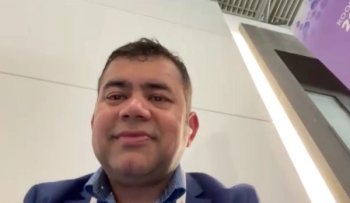
Binod Dhakal, MD, associate professor, division of hematology and oncology, Medical College of Wisconsin and lead investigator of the CARTITUDE-4 study, presented updated data at the 2024 International Myeloma Society conference.

Binod Dhakal, MD, associate professor, division of hematology and oncology, Medical College of Wisconsin and lead investigator of the CARTITUDE-4 study, presented updated data at the 2024 International Myeloma Society conference.

After a small number of practices joined the Enhancing Oncology Model (EOM) in 2023, CMS has made some changes and opened the model back up for new practices to join.

Delia Orosco, MS, director of Community Wellness Centers at Inland Empire Health Plan, shares insight into innovative initiatives provided by the wellness centers and their new mobile mammogram clinics.

On September 19, the FDA handed down its third amivantamab (Rybrevant; Johnson & Johnson) approval for 2024 in non–small cell lung cancer (NSCLC), giving the third-generation tyrosine kinase inhibitor its fourth approval overall.
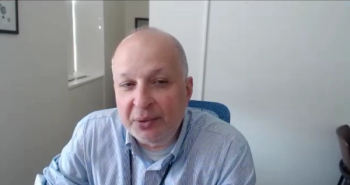
Ashraf Badros, MB, ChB, professor at the University of Maryland School of Medicine, director of the Multiple Myeloma Service, and vice chair of the Clinical Research Committee for the Program in Oncology, compares the AURIGA trial with other studies on maintenance therapy for patients with multiple myeloma.
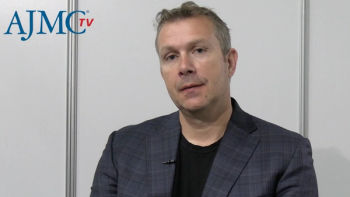
Toby Maher, MD, PhD, professor of clinical medicine, Keck Medicine of USC, discusses the impact of changes in lung function in patients with idiopathic pulmonary fibrosis (IPF).

Saad Z. Usmani, MD, MBA, FACP, myeloma specialist and cellular therapist at Memorial Sloan Kettering Cancer Center, presented the results of the CEPHEUS trial and emphasized the positive impact daratumumab has on patients with multiple myeloma.

Linda Bosserman, MD, PhD, FASCO, FACP, of City of Hope, discusses the implementation of cutting-edge cancer treatments, emphasizing the need for effective information sharing and collaboration to improve cancer care access for diverse populations.

This interview accompanies the fourth podcast in our National Recovery Month series with Amy Herschell, PhD, associate vice president, Program Implementation and Evaluation, Community Care Behavioral Health Organization, part of the UPMC Insurance Services Division, and Jessica Meyers, MSEd, senior advisor for implementation, UPMC Center for High-Value Health Care.

Rahul Banerjee, MD, FACP, assistant professor in the Division of Hematology and Oncology, University of Washington, dissects the limited data on T-cell therapies for multiple myeloma, infectious complications, and access to specialized treatment centers.
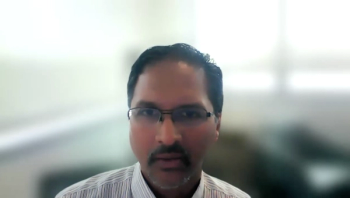
Anant Madabhushi, PhD, executive director for the Emory Empathetic AI for Health Institute, proposes AI-based solutions to address health care disparities, emphasizing systemic racism and phenotypic variations.

Rahul Banerjee, MD, FACP, assistant professor in the Division of Hematology and Oncology, at the University of Washington, determines the optimal use of minimal residual disease (MRD) in individual patient management, including decisions about continuing or stopping treatment.

Arash Mostaghimi, MD, MPA, MPH, director of the inpatient dermatology consult service at Brigham & Women's Hospital, discusses the utility of deuruxolitinib for treating moderate to severe alopecia areata (AA).
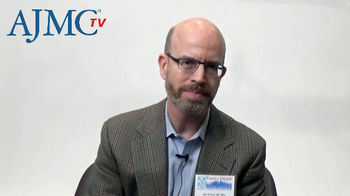
Benjamin Scirica, MD, MPH, director of quality initiatives at Brigham and Women’s Hospital’s Cardiovascular Division, discussed the importance of team-based care and gaps in technology to manage patients at risk of cardiovascular disease (CVD).

Andrew Leitner, MD, of City of Hope, discusses the challenges of integrating supportive care into cancer treatment and proposes solutions to improve access for patients from underserved communities.
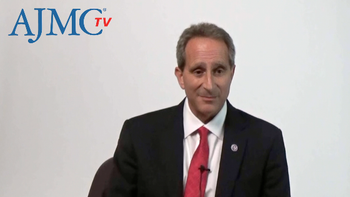
Laurence Sperling, MD, executive director of the Million Hearts initiative at the CDC and CMS, shared insight into population health strategies to address cardiovascular disease (CVD) prevention in at-risk populations.

Linda Bosserman, MD, PhD, FASCO, FACP, of City of Hope, emphasizes the need for a sustainable health care system that balances cost with care so patients can achieve the best survival and quality of life after a cancer diagnosis.

Strategies for integrated delivery networks (IDNs) to manage rising biologic medication costs while ensuring financial sustainability and patient outcomes are discussed during an interview with Elie M. Bahou, PharmD, MBA, senior vice president and system chief pharmacy officer at Providence.
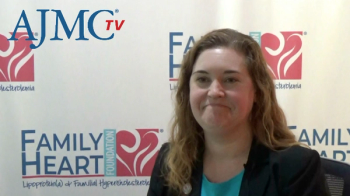
Amy Peterson, MD, professor in the Department of Pediatrics at the University of Wisconsin, discussed current pediatric lipid screening guidelines and the potential evolution of pediatric lipid screening in the coming years.

Andrew Leitner, MD, City of Hope, highlights the essential role of supportive care in improving the quality of life of patients with cancer undergoing treatment.

JT Lew, PharmD, MBA, managed care pharmacist at MultiCare Health System, spoke to the impacts of processes such as prior authorization and step therapy requirements in the realm of multiple sclerosis (MS).

Linda Bosserman, MD, PhD, FASCO, FACP, of City of Hope, highlights challenges in cancer care, focusing on improving access to accurate diagnoses and treatments, promoting patient-centered approaches, and fostering collaboration to achieve better outcomes.

Arash Mostaghimi, MD, MPA, MPH, assistant professor of dermatology, director of the inpatient dermatology consult service, and codirector of the Complex Medical Dermatology Fellowship at Brigham & Women's Hospital, draws attention to the challenges in identifying specific treatment targets in alopecia areata and the development of effective outcome measures for clinical trials.

September is National Recovery Month, and we are bringing you another limited-edition month-long podcast series with our Strategic Alliance Partner, UPMC Health Plan. In our fourth episode, we speak with Amy Herschell, PhD, and Jessica Meyers, MSEd.
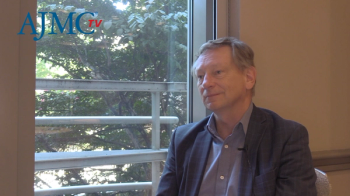
Demonstration projects to show accurate use of artificial intelligence (AI) in cancer care are important to prevent a loss of credibility in the technology, explained Glenn Balasky, executive director, Rocky Mountain Cancer Centers.
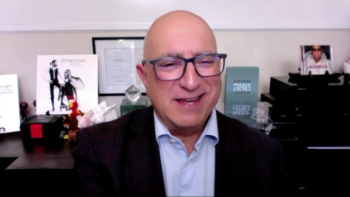
Joseph Alvarnas, MD, of City of Hope, discusses how he envisions the future of cancer care over the next decade.

April Armstrong, MD, MPH, chief of dermatology, UCLA, discusses clinical trial findings from the phase 2b study on zasocitinib.

This interview accompanies the third podcast in our National Recovery Month series with Kim MacDonald-Wilson, ScD, CPRP, senior program director, Recovery and Wellness Transformation, and Tracy Carney, CPS, CPRP, senior recovery and resiliency specialist, Community Care Behavioral Health Organization.

Joseph Alvarnas, MD, of City of Hope, recaps yesterday's Institute for Value-Based Medicine® (IVBM) event on value-based oncology care, emphasizing patient-centered approaches and how attendees can apply these insights in their daily practice.
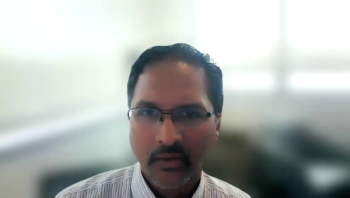
Anant Madabhushi, PhD, executive director for the Emory Empathetic AI for Health Institute, discusses the potential of artificial intelligence (AI) for myeloma research at the 2024 International Myeloma Society conference.

259 Prospect Plains Rd, Bldg H
Cranbury, NJ 08512
© 2025 MJH Life Sciences®
All rights reserved.
